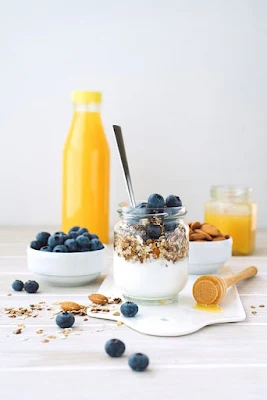- Get link
- X
- Other Apps
- Get link
- X
- Other Apps
Nutritional yeast is a type of deactivated yeast often used as a flavor enhancer and nutrition boost. In this in-depth article, we will explore the research-backed health benefits of nutritional yeast, how to incorporate it into your diet, and more.
Nutritional Profile of Nutritional Yeast
Nutritional yeast is highly nutritious and contains important vitamins, minerals, proteins and more.
High in B-vitamins
Nutritional yeast contains a significant amount of many B-vitamins including thiamin, riboflavin, niacin, vitamin B6, vitamin B12, pantothenic acid and folate.
Contains Protein and Fiber
While not a complete protein, one tablespoon provides 3-4g of protein and 1-2g of fiber to support muscle growth, digestion and blood sugar control.
Rich in Minerals
Nutritional yeast contains selenium, chromium, manganese and zinc which play key roles in metabolism, immune function and more.
Nutritional Yeast Boosts Heart Health
The abundant B-vitamins and chromium in nutritional yeast have research-backed benefits for heart health.
Regulates Blood Sugar
Chromium aids insulin sensitivity so blood sugar remains stable after meals. Balanced blood sugar reduces cardiovascular disease risk over time.
Lowers Cholesterol
Studies show B-vitamin intake through nutritional yeast can lower LDL "bad" cholesterol levels and maintain healthy HDL "good" cholesterol levels.
Fights Inflammation
Inflammation damages arterial walls over time if left unchecked. Nutritional yeast contains compounds like selenium and beta-glucans that may reduce systemic inflammation.
Nutritional Yeast Supports Brain Health
The nutrients in nutritional yeast play an important role in maintaining brain and nervous system function as we age.
Supplies Essential B-vitamins
B-vitamins like folate, B12 and B6 are involved in myelin sheath production which insulates neurons. They keep homocysteine levels in check to prevent neural tube defects and cognitive decline.
May Assist with Depression
Preliminary studies found chromium from nutritional yeast helped control cravings and regulate moods in mildly depressed participants. More research is still warranted.
Supports Neurotransmitters
Amino acids from protein, and vitamins B1, B6 and folate from yeast all aid in synthesizing mood-regulating neurotransmitters like serotonin, dopamine and norepinephrine.
Nutritional Yeast May Reduce Cancer Risk
While research is still emerging, compounds in nutritional yeast show antioxidant and anticancer properties.
Boosts Antioxidant Intake
Beta-glucans, selenium and zinc in yeast function as antioxidants to neutralize free radicals before they cause DNA damage linked to carcinogenesis.
Induces Phase II Enzymes
Sulforaphane in nutritional yeast sparks detoxifying enzymes in the liver to safely eliminate potential carcinogens from the body.
May Slow Tumor Growth
Animal studies found selenium and certain peptides in yeast slowed abnormal new blood vessel formation (angiogenesis) that feeds tumors. More human studies are warranted.
Nutritional Yeast Boosts Immunity
Its balanced nutrients support robust immune defenses against pathogens and foreign invaders.
Zinc Fights Off Infections
A zinc deficiency increases sicknesses and recovery time from colds/flu. One Tbsp of yeast provides 25% of the Daily Value for zinc to maintain immunity.
Selenium Bolsters Antioxidant Enzymes
The antioxidant selenoproteins produce by selenium aid T-cell function and are involved in leukocyte production and activity against infection.
Supplies Need B-vitamins for White Blood Cells
Folate, B6 and B12 are required for white blood cell production and maintenance. Low levels impair immune response and inflammatory control.
Easy Ways to Enjoy Nutritional Yeast
Try adding nutritional yeast to a variety of dishes for a nutritional and flavor boost.
On Popcorn
A favorite use is sprinkling nutritional yeast over hot popped popcorn for a cheesy taste without dairy.
In Pasta Sauces
Stirring a spoonful into marinara sauce or Alfredo lends a savory, Parmesan-like accent.
Over Vegetables
Roasting or sautéing veggies like Brussels sprouts, broccoli or green beans then tossing with yeast enhances their taste.
In Casseroles
It adds nutrition plus makes beans, rice or veggie dishes more satisfying when baked into lasagna, enchiladas or strata.
Smoothies
Blend a tablespoon into fruit or greens smoothies for extra protein and B-vitamins to fuel your day.
On Toast
Sprinkle nutritional yeast onto avocado or almond butter toast in place of salt for a protein-rich snack.
In conclusion:
regularly consuming nutritional yeast can substantially boost intake of many essential vitamins, minerals and plant-based proteins to support overall health and wellness. Consider creative ways to incorporate it into your diet for these research-backed benefits.


Comments
Post a Comment